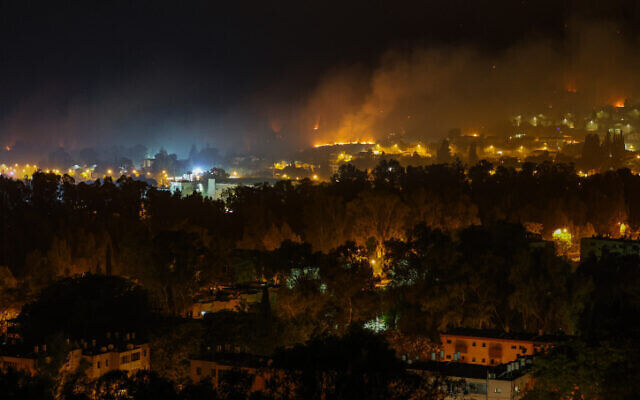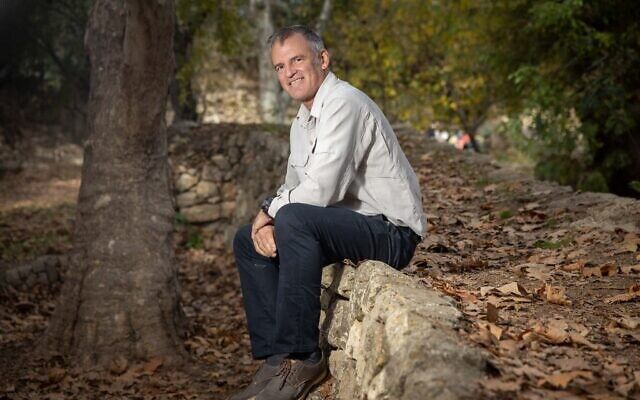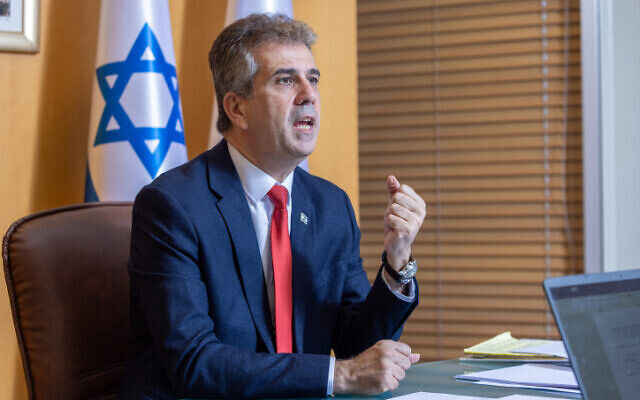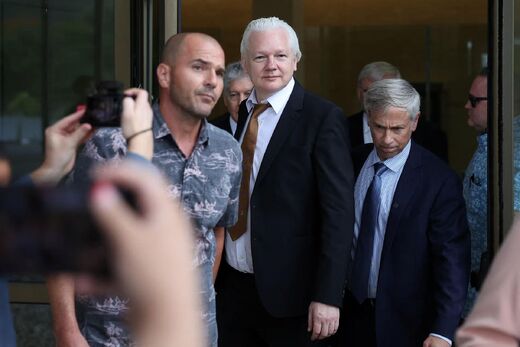
View of a large fire caused by attacks from Lebanon, in the northern town of Kiryat Shmona, June 3, 2024
Israel is not prepared for the damage its electricity infrastructure would sustain if a full-scale war were to break out with Hezbollah, the head of the company responsible for planning the country's electrical systems warned on Thursday, though he later cast that remark as "irresponsible."
"We are not in a good situation, and we are not prepared for a real war. We are living in a fantasy," said Shaul Goldstein, who leads Israel's Independent System Operator Ltd, known by its Hebrew initials NOGA.
"We cannot promise electricity if there is a war in the north. After 72 hours without electricity, it will be impossible to live here. We are not prepared for a real war," said the NOGA CEO during an appearance at a conference in the southern city of Sderot after he was asked whether he could guarantee continuous power in an emergency scenario.
"If Nasrallah decides to neutralize Israel's power grid, he only needs to pick up the phone and call the head of Beirut's power grid, which is [largely] identical to Israel's," Goldstein claimed.
After his comments began grabbing headlines, Goldstein sought to walk some of them back, telling the Kan public broadcaster: "I made irresponsible remarks that I shouldn't have."
Comment: Heaven forbid he question the illusion of Israeli invincibility.
His warning came amid increasing concern that the situation on Israel's northern border could escalate to a full-fledged war between Israel and the Iranian-backed terror group Hezbollah. The Shiite militia is believed to possess some 150,000 rockets that it could use to target Israeli infrastructure.

Meir Shpilger, CEO of the Israel Electric Company, which implements NOGA's plans called Goldstein's words "irresponsible [and] detached from reality," accusing him of unnecessarily sowing panic.
"The State of Israel will not be left in the dark. The odds of a power outage lasting days are very low," Energy Minister Eli Cohen tweeted in response.
"We prepare for all scenarios," Cohen added. "The State of Israel has the ability to generate electricity from a large variety of sources. We have gas rigs, we have reserves of diesel fuel, we have huge reserves of coal and we also generate electricity from renewable energy.
"Our reserves of energy sources are dispersed in classified and protected locations. There are many other actions we have taken to ensure regular energy supply, which cannot be detailed," he said.
"If there will be an hours-long power outage in Israel, there will be a months-long power outage in Lebanon," Cohen warned.

Since October 8, Hezbollah-led forces have attacked Israeli communities and military posts along the border on a near-daily basis, with the group saying it is doing so to support Gaza amid the war there.
So far, the skirmishes on the border have resulted in 10 civilian deaths on the Israeli side, as well as the deaths of 15 IDF soldiers and reservists. There have also been several attacks from Syria, without any injuries.
Hezbollah has named 349 members who have been killed by Israel during the ongoing skirmishes, mostly in Lebanon but some also in Syria. In Lebanon, another 63 operatives from other terror groups, a Lebanese soldier, and dozens of civilians have been killed.
In recent weeks, the exchanges of fire on the border with Lebanon have escalated, with Hezbollah firing hundreds of rockets into Israel, and the Israeli military killing Hezbollah operatives — including, recently, a senior commander.
Hezbollah leader Hassan Nasrallah in a speech commemorating that slain commander, threatened Israel on Wednesday with "total war," adding that the Shiite terror group does not seek a complete escalation with Israel but will continue to act in support of Hamas.
"No place" in Israel would be spared from the group's weapons in case of a full-blown war, Nasrallah warned, saying Hezbollah will fight with "no rules" and "no ceilings" and adding: "The enemy knows well that we have prepared ourselves for the worst... and that no place... will be spared from our rockets."
Nasrallah's comments came one day after the IDF announced that generals had approved battle plans for an offensive in Lebanon, as US special envoy Amos Hochstein traveled to Jerusalem and Beirut in an effort to de-escalate the situation.




Comment: Step by step, Israel is engineering its own destruction. That is the fate of those who refuse to see reality. Hezbollah has a long memory: